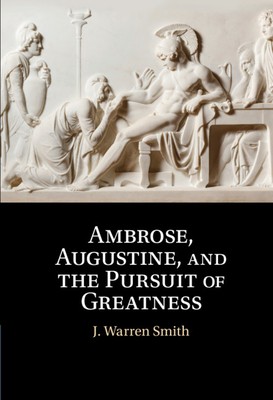
- We will send in 10–14 business days.
- Author: J Warren Smith
- Publisher: Cambridge University Press
- ISBN-10: 1108490743
- ISBN-13: 9781108490740
- Format: 15.2 x 22.9 x 2.1 cm, kieti viršeliai
- Language: English
- SAVE -10% with code: EXTRA
Reviews
Description
Since Aristotle, the concept of the magnanimous or great-souled man was employed by philosophers of antiquity to describe individuals who attained the highest degree of virtue. Greatness of soul (magnitudo animi or magnanimitas) was part of the language of Classical and Hellenistic virtue theory central to the education of Ambrose and Augustine. Yet as bishops they were conscious of fundamental differences between Christian and pagan visions of virtue. Greatness of soul could not be appropriated whole cloth. Instead, the great-souled man had to be baptized to conform with Christian understandings of righteousness, compassion, and humility. In this book, J. Warren Smith traces the development of the ideal of the great-souled man from Plato and Aristotle to latter adaptions by Cicero, Seneca, and Plutarch. He then examines how Ambrose's and Augustine's theological commitments influenced their different critiques, appropriations, and modifications of the language of magnanimity.
EXTRA 10 % discount with code: EXTRA
The promotion ends in 21d.16:59:41
The discount code is valid when purchasing from 10 €. Discounts do not stack.
- Author: J Warren Smith
- Publisher: Cambridge University Press
- ISBN-10: 1108490743
- ISBN-13: 9781108490740
- Format: 15.2 x 22.9 x 2.1 cm, kieti viršeliai
- Language: English English
Since Aristotle, the concept of the magnanimous or great-souled man was employed by philosophers of antiquity to describe individuals who attained the highest degree of virtue. Greatness of soul (magnitudo animi or magnanimitas) was part of the language of Classical and Hellenistic virtue theory central to the education of Ambrose and Augustine. Yet as bishops they were conscious of fundamental differences between Christian and pagan visions of virtue. Greatness of soul could not be appropriated whole cloth. Instead, the great-souled man had to be baptized to conform with Christian understandings of righteousness, compassion, and humility. In this book, J. Warren Smith traces the development of the ideal of the great-souled man from Plato and Aristotle to latter adaptions by Cicero, Seneca, and Plutarch. He then examines how Ambrose's and Augustine's theological commitments influenced their different critiques, appropriations, and modifications of the language of magnanimity.


Reviews